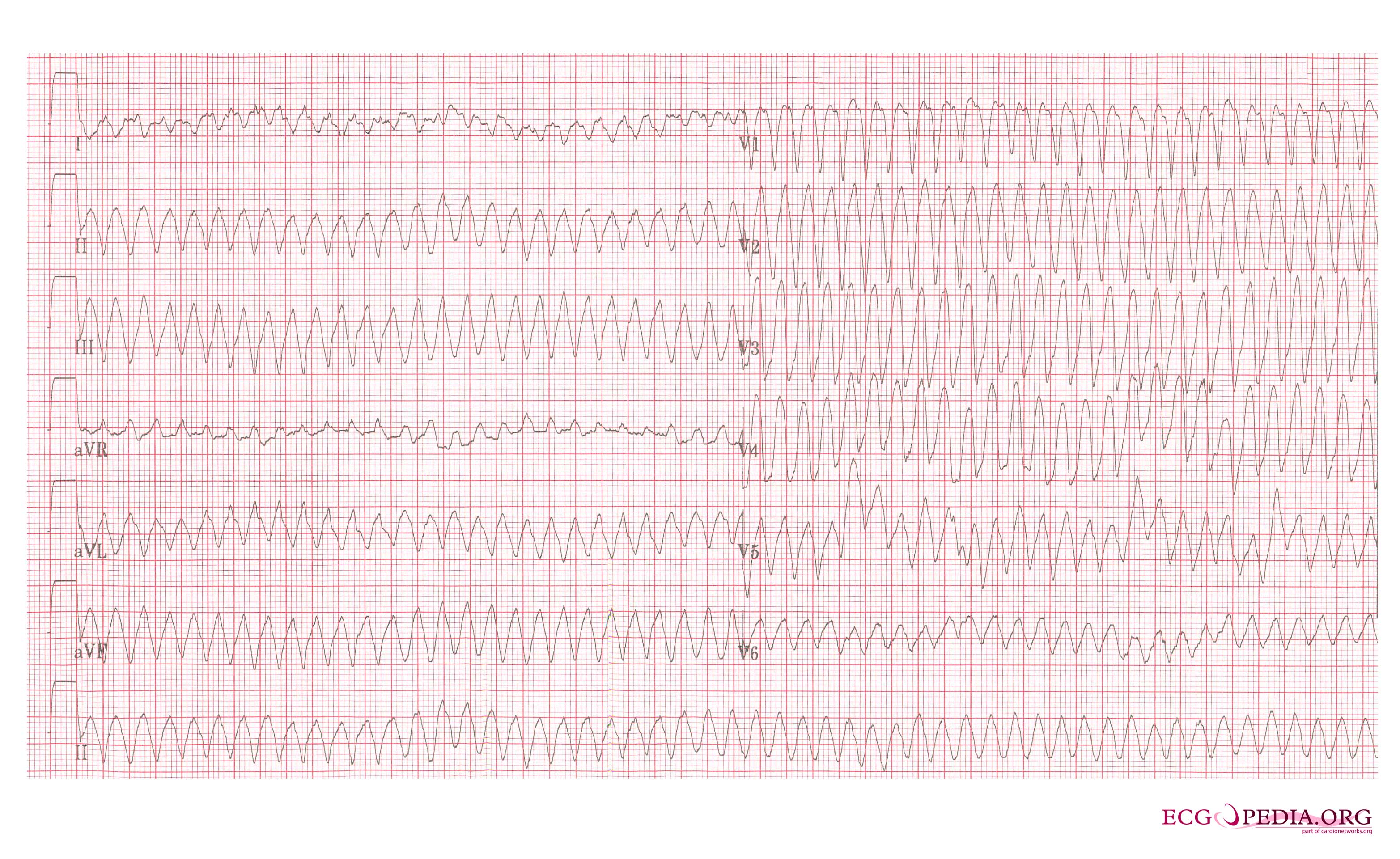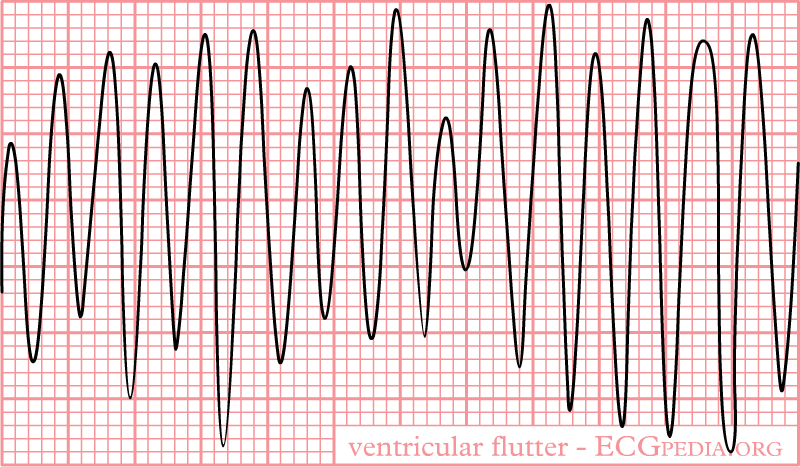Ventricular flutter
| Ventricular flutter | |
 | |
|---|---|
| Ventricular Flutter | |
| ICD-10 | I49.0 |
| ICD-9 | 427.42 |
| MeSH | D054141 |
Editor-In-Chief: C. Michael Gibson, M.S., M.D. [1]
Overview
Ventricular flutter is an arrythmia affecting the ventricles that can occur in infancy[1], youth,[2] or as an adult.
Ventricular flutter is mostly caused by re-entry with a frequency of 300 bpm. The ECG shows a typical sinusoidal pattern. During ventricular flutter the ventricles depolarize in a circular pattern, which prevents good function. Most often this results in a minimal cardiac output and subsequent ischemia. Often deteriorates into Ventricular Fibrillation.
It can be induced by programmed electrical stimulation.[3][4]
Diagnosis
EKG
Shown below is an EKG with a ventricular flutter.

Copyleft image obtained courtesy of ECGpedia, http://en.ecgpedia.org/wiki/Main_Page
Shown below is an EKG with a ventricular flutter.

Copyleft image obtained courtesy of ECGpedia, http://en.ecgpedia.org/wiki/File:Ventricular_flutter_12lead.jpg
Shown below is an EKG with a ventricular flutter.

Copyleft image obtained courtesy of ECGpedia, http://en.ecgpedia.org/wiki/File:Rhythm_flutter.png
References
- ↑ Thies KC, Boos K, Müller-Deile K, Ohrdorf W, Beushausen T, Townsend P (2000). "Ventricular flutter in a neonate--severe electrolyte imbalance caused by urinary tract infection in the presence of urinary tract malformation". J Emerg Med. 18 (1): 47–50. PMID 10645837. Unknown parameter
|month=ignored (help) - ↑ Hayashi M, Murata M, Satoh M; et al. (1985). "Sudden nocturnal death in young males from ventricular flutter". Jpn Heart J. 26 (4): 585–91. PMID 4057556. Unknown parameter
|month=ignored (help) - ↑ Gurevitz O, Viskin S, Glikson M; et al. (2004). "Long-term prognosis of inducible ventricular flutter: not an innocent finding". Am. Heart J. 147 (4): 649–54. doi:10.1016/j.ahj.2003.11.012. PMID 15077080. Unknown parameter
|month=ignored (help) - ↑ Viskin S, Ish-Shalom M, Koifman E; et al. (2003). "Ventricular flutter induced during electrophysiologic studies in patients with old myocardial infarction: clinical and electrophysiologic predictors, and prognostic significance". J. Cardiovasc. Electrophysiol. 14 (9): 913–9. PMID 12950532. Unknown parameter
|month=ignored (help)